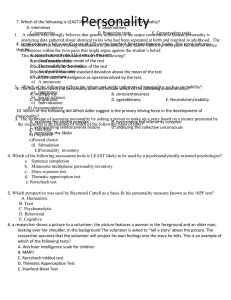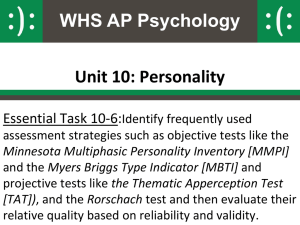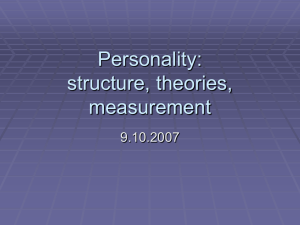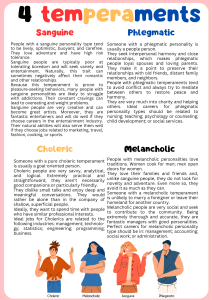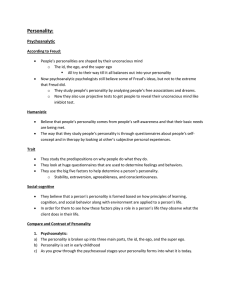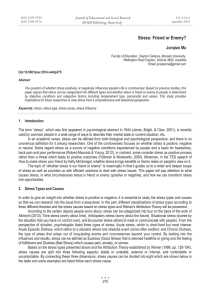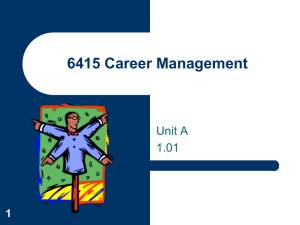Testing
advertisement
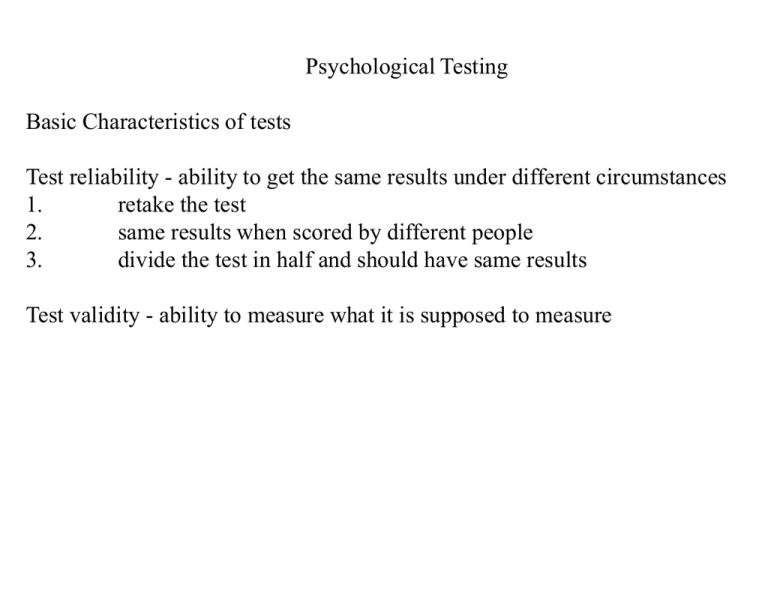
Psychological Testing Basic Characteristics of tests Test reliability - ability to get the same results under different circumstances 1. retake the test 2. same results when scored by different people 3. divide the test in half and should have same results Test validity - ability to measure what it is supposed to measure Establishing norms - percentile system Mean - average Median - middle score Mode - most occurring Intelligence tests Alfred Binet Mental age and a chronological age Stanford-binet IQ - intelligence quotient Mental age divided by chronological age X 100 Controversy over IQ tests Genetics Environmental differences A symphony is to a composer as a book is to what? Dove counterbalance test Measuring abilities and interests Aptitude tests - discover person’s talents and predict ability to learn a new skill Ex. ASVAB Achievement tests - measure how much a person has already learned in an area Ex. Quiz on Friday Interest tests - determine preferences, attitudes and interests Ex. Career tests Personality tests Objective personality tests - forced choice Ex. Color test, Sanguine test Projective personality tests - open-ended examinations Ex. TAT Ex. Rorschach ink-blot test Situational tests - measures performance in terms of emotional, attitudinal, behavioral responses to true-life situations Ex. Job tests Ex. Drivers test Wechsler tests more emphasis on performance details of strengths and weaknesses in a variety of areas Group tests Ex. SAT/ACT



